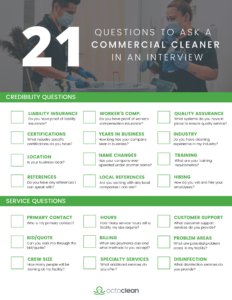The day in the life of a facility manager can come with a long list of stress inducing problems. Facility managers are responsible for the upkeep of an organization’s building(s), but that also means they are responsible for meeting legal requirements, health and safety standards, coordinating maintenance services and more.
If you are a facility manager, we’re sure you are familiar with these five causes of work related stress:
- Not enough time in the day for everything that needs attention.
- A lack of budget and resources.
- Demands of the job that are constantly changing.
- Poor conditions of the building.
- Communicating with building occupants.
So, what can you do to avoid job related stress? There are three things that will help minimize stress for a facility manager. The first is to prioritize communication.
1. Prioritize Communication.
Most problems are a result of poor communication. For example, you may find yourself dropping everything to immediately address a concern because an occupant didn’t report the issue when it was first identified. Or cleaning services scheduled in preparation for an event are not done in time because important details where not properly relayed to the cleaning staff.
Prioritize communication to avoid similar issues that take up your time and create stress. Here are some helpful ways to improve communication with your team and partners:
Make it Easy to Report a Problem
If building issues are going unreported, it is likely that building occupants don’t know how to report their concerns. Make it easy by clearly identifying which communication channels are available. Consider making a dedicated email or form strictly for reporting issues. If you are working with a vendor, like OctoClean, know who your point of contact is and their preferred form of communication. Good vendors will have their methods of communication outlined to remove the responsibility from you. For example, OctoClean creates custom email groups for all of our customers to ensure open communication and timely responses.
Clearly Identify How Issues Are Resolved
Your team should know how to report an issue, but they should also know how issues are resolved after the fact. Outline your processes and share them with your entire staff. If your goal is to improve communication with a vendor, make sure that their processes are clear to you. A great vendor should be available to you when you need them. They should also have a system to record requests and complaints. We recommend regular meetings to discuss service performance.
2. Vet Your Vendors.
The whole purpose of outsourcing maintenance services is to free up your time as a facility manager. But if you are constantly complaining or needing to make changes, it can cause added stress and work for you. Before you decide to partner with a vendor, make sure you ask them the right questions.
Prepare for the Interview
It’s not all about the service. Yes, your vendors should be able to provide the services you need at the capacity that you need them, but they should also have support services and they should be insured and bonded to protect your business. We’ve created a free checklist to help any business properly vet their vendors.
Download 21 Questions to Ask a Commercial Cleaner in an Interview
Select the right vendor for you with this FREE guide.

Set Realistic Expectations
While you shouldn’t have to make a complaint every day, complaints will happen. It is a reality of managing a building with changing needs and occupants. Clearly identify with your vendors what you expect of them and also identify what your priorities are. What are your deal breakers? What problems are you hoping to solve? The more transparent you are, the more transparent your vendors can be.
3. Set boundaries and Delegate.
You don’t need to do everything on your own. You also shouldn’t allow yourself to take on everything directed your way. Lean on your team and hires for support. If the budget allows, find qualified people who can assist you. If it doesn’t, set boundaries with your existing team so that they can set realistic expectations.
Delegate and Automate Where Possible
Train your staff on everything that you know, so that you can trust that things will get done correctly when you are gone. If you don’t have staff that work under you, create protocols for when you are away. This could mean working with your vendors to support you or coordinating with other members of your team. You may also consider using a software or system that can help you manage incoming requests and automate processes to make your life easier.
Know When to Take a Break
You will be a much more effective facilities manager if you make time for your mental and physical health. Be available and present, but be sure to also take your lunch breaks and only answer to emergencies after 7pm (or a time that is reasonable to your facility). When you set boundaries and stick to them, your team will learn to respect your time.
Let’s Summarize
Work can be stressful, but facility managers can minimize stress in these three ways:
- Prioritize communication – Clearly identify your processes for reporting and resolving concerns.
- Vet your vendors – Ask the right questions and set realistic expectations.
- Set boundaries and delegate – Lean on your team and make time for yourself.
The more effort a facility manager puts into minimizing stress, the more effective they can be at their work. If you are interested in learning how OctoClean can help support you, contact us to talk.

